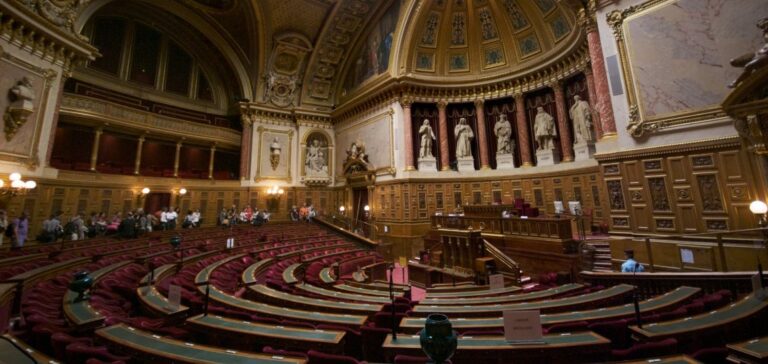Members of Parliament from the Horizons and Les Républicains parties, joined by energy sector experts and former executives, have called for a halt to the imminent publication of the third Multiannual Energy Programme (Programmation pluriannuelle de l’énergie, PPE3), during a press conference held in Paris. This roadmap, which is expected to be enacted by decree in the coming days, sets France’s energy objectives for the 2025-2035 period.
The group, which includes former chief executives of Électricité de France (EDF) Henri Proglio and of Réseau de Transport d’Électricité (RTE) André Merlin, criticised the trajectory as being “imposed” and developed under outdated conditions, preceding recent geopolitical crises and the rise in electricity prices. The appeal, led by Members of Parliament Henri Alfandari and Vincent Louault (Horizons), as well as Senators Stéphane Piednoir and Raphaël Schellenberger (Les Républicains), comes amid growing political tension over the country’s energy strategy.
Opposition to current energy governance
The signatories reject a direction they claim gives disproportionate weight to intermittent sources such as wind and solar, without accounting for structural limits in the electricity grid and national sovereignty requirements. They argue the current PPE echoes a “renewables ideology” that does not align with France’s industrial and fiscal demands.
The initiative is part of a broader parliamentary mobilisation. Following a letter signed by 160 senators addressed to Prime Minister François Bayrou, lawmakers from across the political spectrum are now united in demanding that the roadmap be subject to a parliamentary vote. This request, previously voiced by the Rassemblement National, is now reinforced by a senatorial bill expected to be debated in the National Assembly.
Towards a long-term energy strategy
The MPs are calling for the legal establishment of a 60-year energy planning principle, which they argue would help stabilise France’s energy strategy beyond electoral cycles. This vision is backed by an amendment introduced by Henri Alfandari as part of the current administrative simplification bill being reviewed in committee. Minister of Industry and Energy Marc Ferracci has stated he is “open” to a parliamentary debate on the proposal.
The opposition to PPE3 signals a departure from how energy policy has traditionally been shaped in France, pushing for a rebalancing between technical expertise, political governance, and economic feasibility.






















